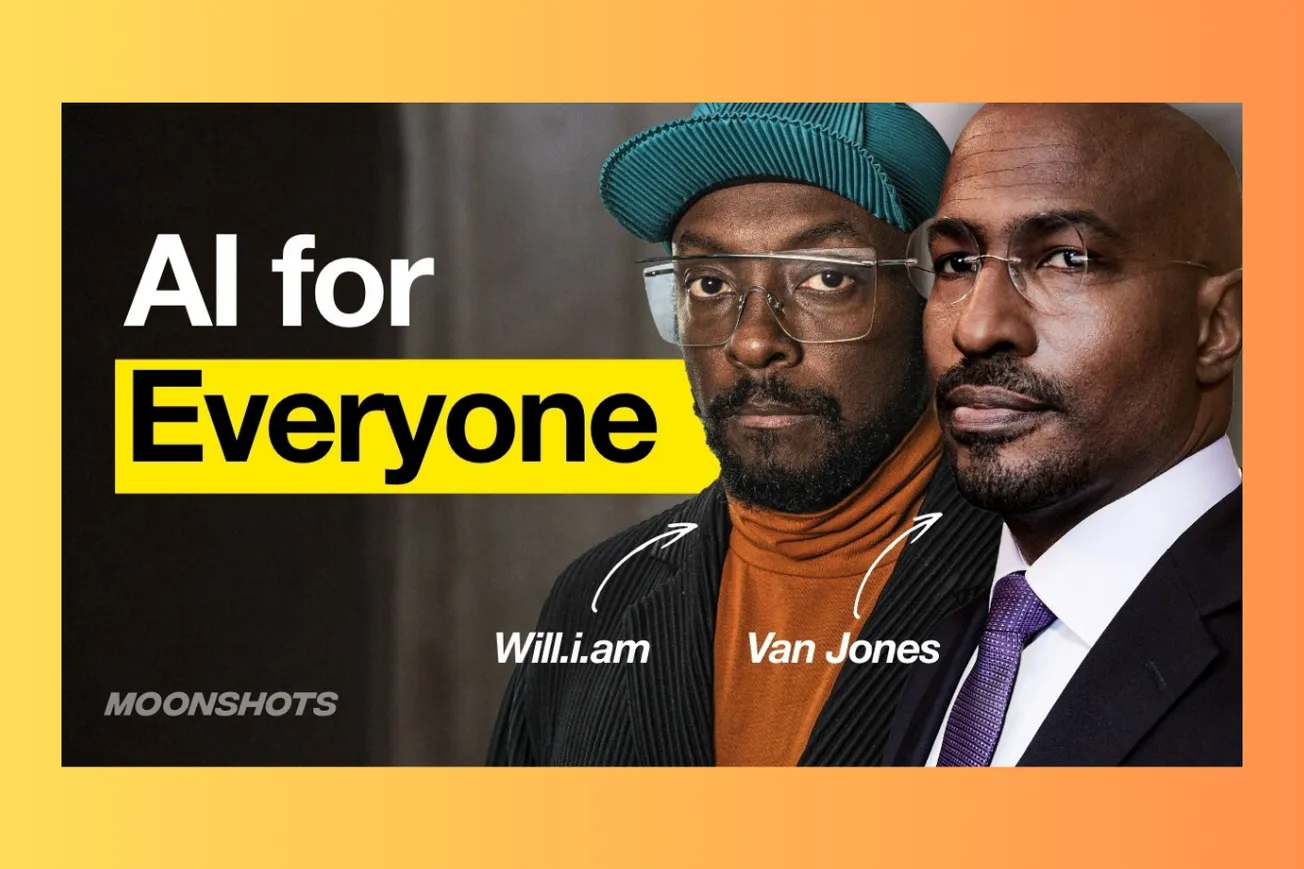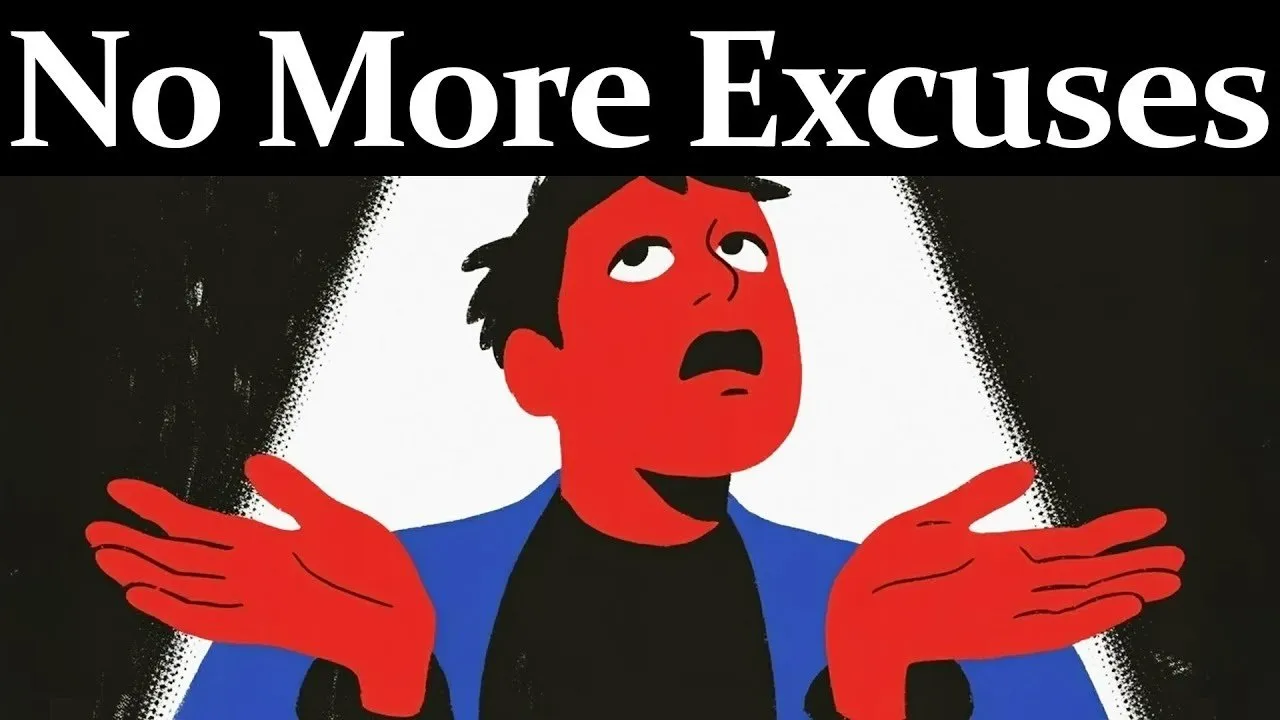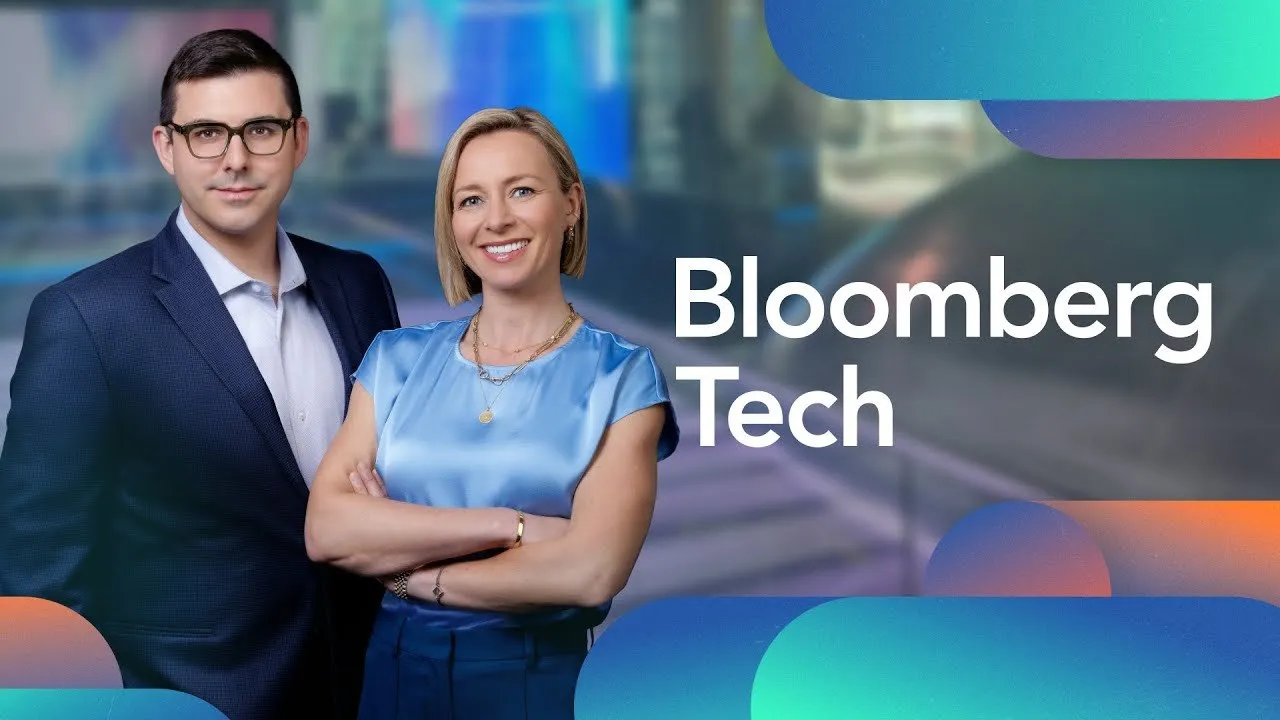Table of Contents
Will.i.am and Van Jones are building the future where AI becomes humanity's greatest equalizer, transforming communities from the global South to inner cities.
Key Takeaways
- AI represents the first time in history where all communities start equally ignorant, creating unprecedented opportunity for global equity
- The "Make Wakanda Real" initiative aims to bridge the digital divide through culturally representative AI agents and accessible technology
- Africa's youth demographic advantage positions the continent to become the next technological superpower by 2040-2050
- Personal AI ownership, not just access, will become as essential as having your own immune system in the coming decade
- The gap between AI development and spiritual human growth threatens to create a data-rich but wisdom-poor civilization
- Education systems must embrace AI tools immediately or risk leaving entire generations unprepared for technological transformation
- Traditional media's addiction to negative news cycles undermines society's capacity for innovation and problem-solving
- Communities that have been systematically excluded from resources now possess the creativity and resilience needed for AI-driven solutions
The Demographic Revolution Reshaping Global Power
Africa's youth explosion represents the most significant demographic shift in human history. By 2040, the majority of young people driving global innovation will be African, fundamentally altering economic and technological leadership. Will.i.am emphasizes this isn't theoretical—"Nigeria is going to boom, Ghana's going to boom, Zimbabwe" because demographics equal destiny in the knowledge economy.
The Black Eyed Peas founder has partnered with entrepreneur Strive Masiyiwa to deploy GPU clusters across four African nations, marking the continent's first major AI infrastructure investment. This March 17th announcement signals Africa's transition from resource extraction to technological production, with entrepreneurs like Robert Smith already investing billions in the continent's digital transformation.
China's Belt and Road Initiative has established deep infrastructure partnerships across Africa, creating a geopolitical reality that Western nations can no longer ignore. Van Jones notes this collaboration will produce "half black, half Chinese" and "half black, half Indian" future generations, representing beautiful demographic mixing that strengthens global interconnectedness rather than division.
Personal AI: The New Digital Human Right
Will.i.am's FYI platform demonstrates why AI ownership, not mere access, becomes essential for human dignity. His analogy cuts deep: "You wouldn't buy a house where you're sharing the bathroom, so why are we sharing AI?" Personal AI systems will function like immune systems—uniquely yours, understanding your specific needs, and protecting your individual interests.
The FYI platform features culturally diverse AI agents like Felicia, Fiona, and Mr. K, each designed to reflect the communities they serve rather than perpetuating Silicon Valley's homogeneous worldview. When Hollywood consistently portrays French Napoleon with British accents, it reveals systematic cultural erasure that AI can finally correct through authentic representation.
Van Jones describes this as moving beyond the "hardware problem" and "software problem" to solving the "wetware problem"—the mindset shift required for communities to embrace their technological potential. For the first time in history, 99% of all children start equally ignorant about AI, creating unprecedented opportunity for global equity.
Edge computing developments mean 2GB AI models will soon run entirely on smartphones, eliminating cloud dependency and democratizing access to world-class intelligence. Every person with a reasonable smartphone—roughly 7 billion humans—will carry the world's greatest intelligence in their hip pocket.
Education's Obsolete Infrastructure Meets AI Reality
Traditional education systems fail catastrophically at preparing students for AI-integrated futures. Will.i.am's Harvard case study example reveals the gap: students complete assignments, pass tests, but cannot apply knowledge to real-world problems years later because information remains trapped in biological memory rather than accessible digital systems.
The musician's revolutionary approach involves training AI agents on personal academic experiences, creating permanent knowledge companions that can reference and apply lessons across decades. His case study analyzing Olay's rebranding strategy—including his suggestion to rebrand as "YOLO" (You Always Live Out Loud) targeting younger demographics—demonstrates how AI can bridge classroom theory with practical problem-solving.
Teachers who fear AI adoption mirror his father's calculator resistance—missing the transformational potential while clinging to outdated methodologies. Schools that ban AI tools essentially ban oxygen while worrying about fire, leaving students unprepared for workplaces where AI collaboration becomes mandatory for survival.
The partnership between FYI and major academic institutions focuses on amplifying educators rather than replacing them, enabling professors to grade better, understand students deeper, and build personalized AI tutors that meet learners where they are culturally and intellectually.
The Coming Labor Transformation and Energy Crisis
Humanoid robots costing $30,000—or $300 monthly leases—will disrupt labor markets faster than society can adapt. Companies embracing "level five" automation will operate with minimal human involvement, forcing a fundamental choice between humanistic businesses that prioritize people and fully automated competitors that optimize purely for efficiency.
This transition demands "Diversity, Equity, and Inclusion" policies not for social justice alone, but for human survival in an automated economy. Companies eliminating DEI programs signal their intention to replace human workers with AI systems, Van Jones argues, making human-in-the-loop approaches a competitive necessity rather than moral luxury.
The energy implications stagger the imagination. AI companies going fully online could increase American energy demand by 23-34% within 36 months—equivalent to adding twenty new states to the electrical grid. Sam Altman can afford his energy bills; grandmothers cannot, creating potential social unrest when basic utilities become unaffordable due to AI infrastructure demands.
Will.i.am's skepticism about brain-computer interfaces reflects this energy reality: "We haven't figured out how to run everyone's air conditioning when it's hot, but we're talking about powering 10 billion robots?" The infrastructure challenges require massive innovation in energy production, storage, and distribution before widespread AI deployment becomes sustainable.
Cultural Preservation Through Technology Innovation
Large language models trained on Western canons threaten global cultural extinction unless communities actively preserve their unique knowledge systems. Will.i.am's vision involves capturing "the stories of grandmothers and grandfathers" in countries with oral rather than written traditions, ensuring AI systems reflect authentic cultural wisdom rather than colonial interpretations.
His AI agents speak with community-authentic voices, addressing quantum entanglement in language that resonates with street-smart innovators rather than academic abstractions. This representation matters because intelligence manifests differently across cultures, and AI systems must honor that diversity rather than forcing conformity to dominant paradigms.
The FYI platform's Korean personas, British agents, and Latino voices demonstrate technology's potential for cultural amplification rather than erasure. When AI speaks your language—literally and culturally—it becomes a tool for empowerment rather than marginalization.
Media Dysfunction and the Crisis News Addiction
Van Jones reveals cable news's fundamental dysfunction through his "Crossfire" experience: ratings spiked during conflict but plummeted when hosts found common ground. Audiences literally fled when exposed to solutions, preferring endless combat to collaborative problem-solving. His most positive shows garnered CNN's worst ratings, proving that hope doesn't monetize effectively in attention-based business models.
This addiction to crisis creates civilizational-level problems when societies need creative problem-solving most. Peter Diamandis advocates filtering news through AI systems trained on personal interests rather than consuming whatever editors decide deserves attention. His Daily.ai platform searches global news for breakthrough discoveries rather than catastrophic developments.
Will.i.am demonstrates this approach through FYI's news filtering, engaging AI agents in substantive discussions about current events rather than passive consumption of pre-packaged outrage. Users can debate complex topics with knowledgeable AI companions who provide context and nuance rather than inflammatory soundbites.
The shift from news-as-commodity to education-as-priceless represents journalism's necessary evolution. Information abundance makes breaking news worthless, but frameworks for understanding complex systems become invaluable for navigating uncertain futures.
Common Questions
Q: What exactly is the "Make Wakanda Real" initiative?
A: A movement using AI and technology to empower African and African-American communities, treating fictional Wakanda as a blueprint for technological advancement.
Q: How does Will.i.am's FYI platform differ from ChatGPT?
A: FYI features culturally diverse AI agents with authentic community voices, plus creative collaboration tools designed for problem-solving rather than just conversation.
Q: Why does Africa matter for global AI development?
A: Africa has the world's youngest population and abundant rare minerals needed for technology, positioning it to become the next technological superpower.
Q: What's the difference between AI access and AI ownership?
A: Access means using shared systems; ownership means having personal AI that knows your specific needs, like having your own immune system.
Q: How will AI change education systems?
A: AI will enable personalized learning, help teachers grade and understand students better, and allow knowledge to be applied across decades rather than forgotten.
The convergence of demographic shifts, technological democratization, and cultural preservation creates unprecedented opportunities for global equity. Communities that embrace AI tools while maintaining their cultural authenticity will lead humanity's next evolutionary leap.





